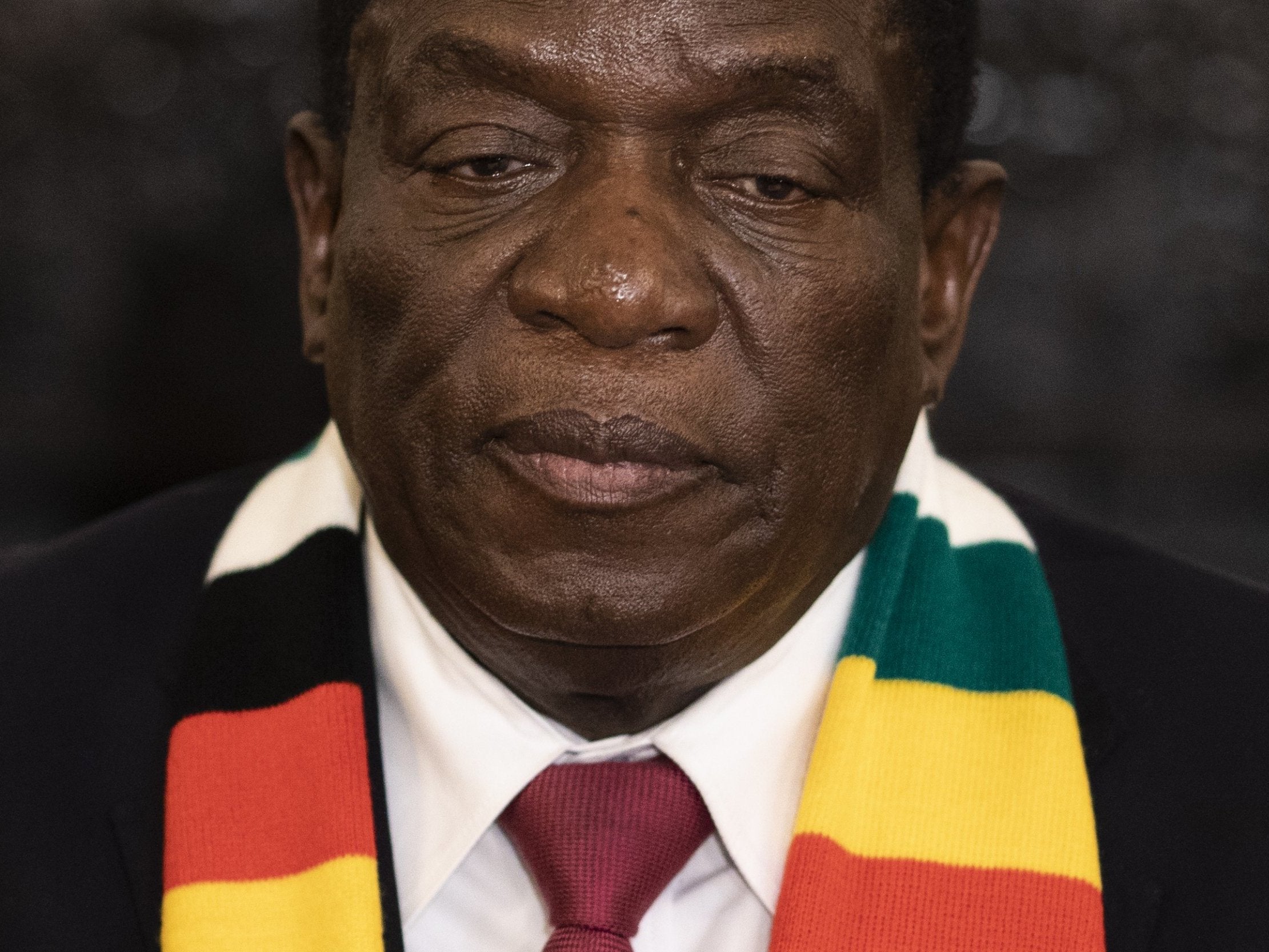Zimbabwe election: Emmerson Mnangagwa inauguration deferred after court challenge of result
Opposition party Movement for Democratic Change alleges first vote in country's post-Mugabe era was rigged

Your support helps us to tell the story
From reproductive rights to climate change to Big Tech, The Independent is on the ground when the story is developing. Whether it's investigating the financials of Elon Musk's pro-Trump PAC or producing our latest documentary, 'The A Word', which shines a light on the American women fighting for reproductive rights, we know how important it is to parse out the facts from the messaging.
At such a critical moment in US history, we need reporters on the ground. Your donation allows us to keep sending journalists to speak to both sides of the story.
The Independent is trusted by Americans across the entire political spectrum. And unlike many other quality news outlets, we choose not to lock Americans out of our reporting and analysis with paywalls. We believe quality journalism should be available to everyone, paid for by those who can afford it.
Your support makes all the difference.Emmerson Mnangagwa’s inauguration as Zimbabwe’s president has been postponed after the main opposition party filed a legal challenge to the results of last month’s election.
Justice minister Ziyambi Ziyambi announced a ceremony planned for Sunday “will no longer happen” after the Movement for Democratic Change (MDC) alleged irregularities in the country’s first vote since long-serving leader Robert Mugabe was deposed.
The opposition party has demanded either fresh elections or the instalment of their candidate, Nelson Chamisa, as president.
The MDC’s lawyers arrived at court on Friday to submit papers less than an hour before the seven-day deadline to challenge the result.
“We have a good case and cause,” declared Mr Chamisa on Twitter.
Zimbabwe’s Electoral Commission has said President Mnangagwa and his ruling Zanu-PF party won the 30 July election, with the president receiving 50.8 per cent of the vote and Mr Chamisa polling 44.3 per cent.
The vote was Zimbabwe’s first without Mr Mugabe on the ballot, after a coup in November ended his 30-year rule as president.
There had been hopes the end of Mr Mugabe’s presidency would begin a new era for the country after decades of political and economic paralysis.
Mr Mnangagwa, a close ally of Mr Mugabe who later took part in his ousting, has said he wants to make Zimbabwe more open and democratic.
But Zimbabwe has been rocked by violence since following the bitterly disputed election, with opposition supporters harassed and beaten in the streets.
Two days after the election, soldiers opened fire during opposition protests in the capital, Harare, killing six people.
Foreign governments, Western election observers and human rights activists have expressed concern about the “excessive” force and the reports of opposition supporters being targeted by security forces.
The MDC claimed soon after the election that the vote was rigged but withheld evidence for the court challenge.
“We have managed to place before the courts all the mathematical and statistical irregularities,” party lawyer Thabani Mpofu told journalists as after emerging from court. A copy of the filing was not immediately available.
A number of grassroots groups and NGOs that fanned out across the country have released reports questioning high turnout in some areas and highlighting striking differences in the number of voters for the presidential and parliamentary elections.
On Thursday, senior opposition figure Tendai Biti was charged with inciting public violence and declaring unofficial election results as fears grew over a government crackdown. Mr Biti had alleged before the electoral commission’s official announcement that Mr Chamisa was the real winner.
Mr Biti first fled to Zambia, where authorities denied asylum and handed him over to Zimbabwean security forces in defiance of a Zambian court order. The United States and several other nations, as well as the UN refugee agency, have expressed concern.
Zimbabwe’s Constitutional Court has 14 days to rule on the challenge to the election result.
Judges can declare a new winner or order a fresh election. But some opposition leaders have expressed scepticism about whether the courts will fairly assess the election challenge, warning they are biased towards the government.
However, Mr Mpofu said the MDC ”wouldn’t have come to court if we thought that the court would not give us a fair hearing”.
He added: “On the basis of the evidence we have placed before the court, we seek in the main relief to the effect that the court should declare the proper winner and the proper winner is my client.
“In the alternative, we seek that there be another election which complies with the dictates of the law. There is no inauguration that will take place until the matter is determined by the court.”
Join our commenting forum
Join thought-provoking conversations, follow other Independent readers and see their replies
Comments